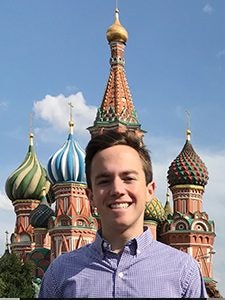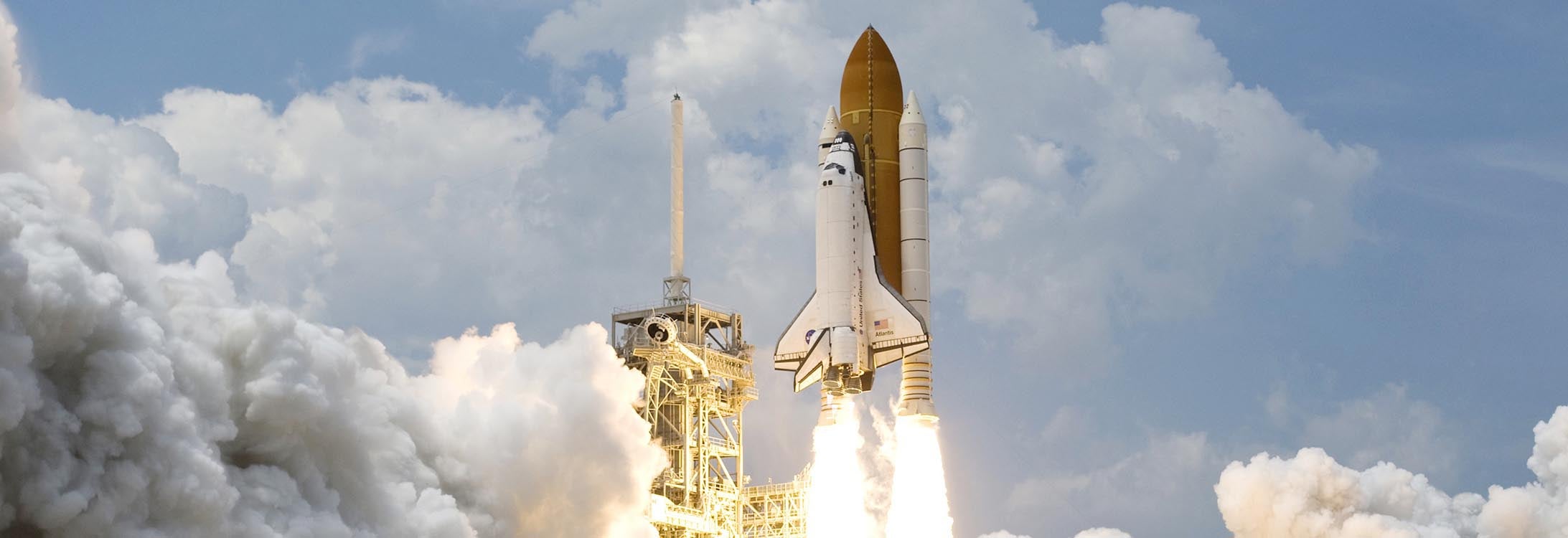Student Profile: Chase Neese

ECU undergraduate researcher Chase Neese is studying how one Russian scientists famous equation still impacts the world today.
Major: Biochemistry
Mentor: Dr. Elena Murenina
Department: Department of Foreign Languages and Literature
Project Title: “Linking Tsiolkovsky’s Rocket Science to Humanities”
The launch of Sputnik, the Apollo missions, the construction of the International Space Station, and present rocket technology can all be traced back to the Russian scientist, philosopher and innovator Konstantin Tsiolkovsky (1857-1935) and his famous equation for flight. As a result, Chase’s research is focused on analyzing the contributions and impact this man has had not only on human space exploration, but on the larger destiny of humanity and the universe as a whole under the guidance of Dr. Murenina in the Russian Studies Department.
How did you get involved in undergraduate research?
I began performing research within the Department of Chemistry, however, my present interest in Russian area studies persuaded me to reach out to the Russian Studies Department and begin taking language and cultural classes. From there, my research project began to take shape as I became more and more involved within the department.
Why did you choose your research topic?
When looking back, Russian influence has always been a part of my life. It all started when I began building model rockets at an early age and was completely fascinated by how the Soviet Union excelled from the beginning of the space race. Now, I would be naïve to say that my pursuit of a Bachelor of Science in Biochemistry didn’t, at least, in part, stem from the passion exemplified in all areas of science, technology, engineering and math by the Soviet Union then and still by Russia today. Having the opportunity to research the effect of Tsiolkovsky on the modern day was the perfect culmination of both my previous and current interests.
What’s been your favorite part of conducting undergraduate research?
Undoubtedly, my favorite part of undergraduate research, specifically within the humanities, has been the opportunity to continue to broaden and diversify my undergraduate educational experience. To me, the more one can do this, the better they will be prepared for the challenges of the 21st century workforce.
Why is your research important for the general public?
I hope my research will shed light on the contributions of space exploration and the into the lives of the everyday person by creating an easily accessible and user-friendly platform to broadcast the information.
What’s your ultimate goal or accomplishment that you hope your research will help you achieve?
By utilizing my knowledge of science, Russian cultural studies and history, I plan to bridge the common divide between science and humanities disciplines by creating an interactive Omeka-based website to showcase the effect of Tsiolkovsky’s vision for the future on the science and intellectual thought development from the 1880s to modern day.
Do you have any advice for other students interested in conducting undergraduate research?
My biggest piece of advice for other students would be to think of a particular discipline or topic you are passionate about and browse faculty homepages to determine if any of your interests overlap. If so, reach out. Professors are usually eager to recruit new students.
